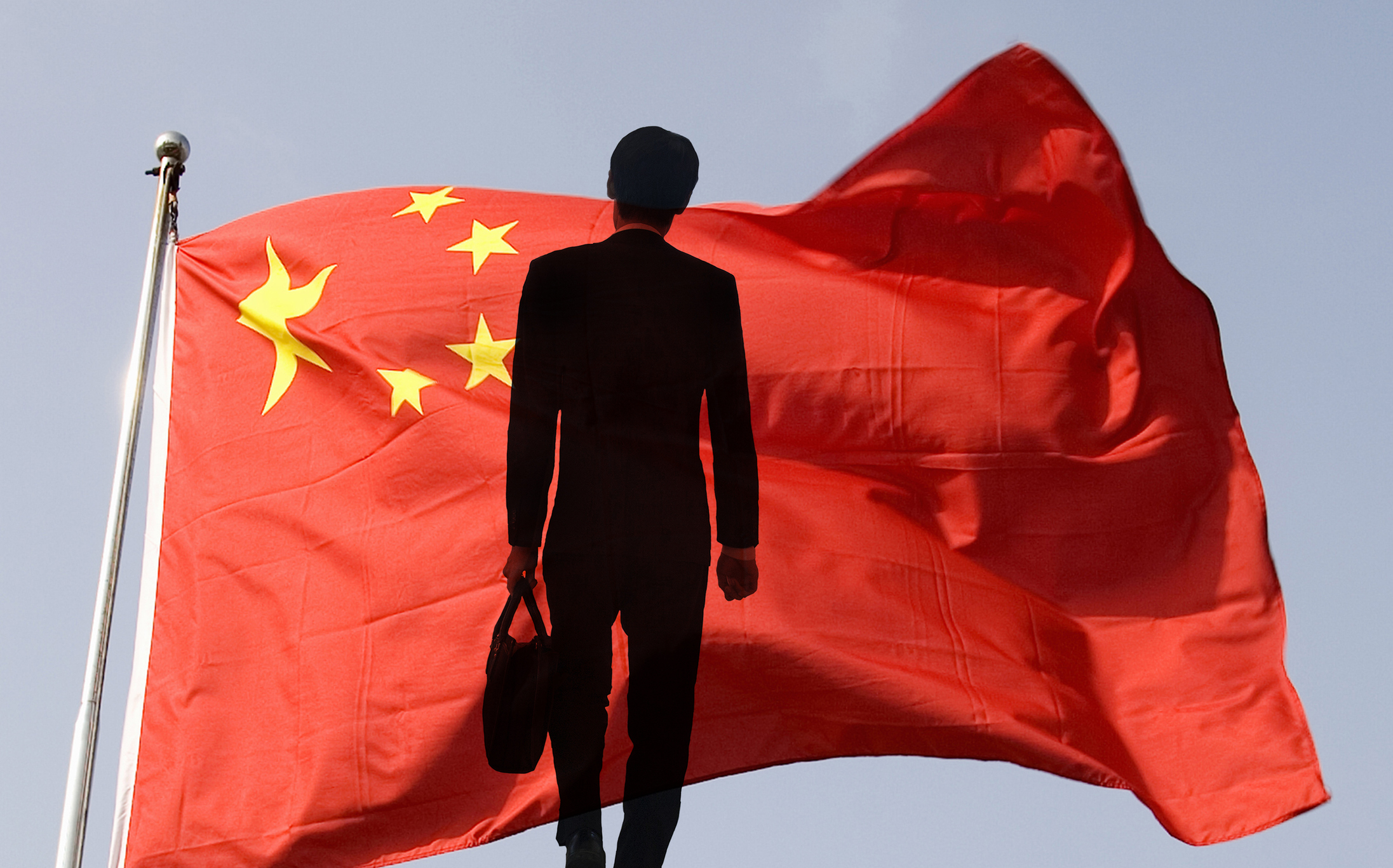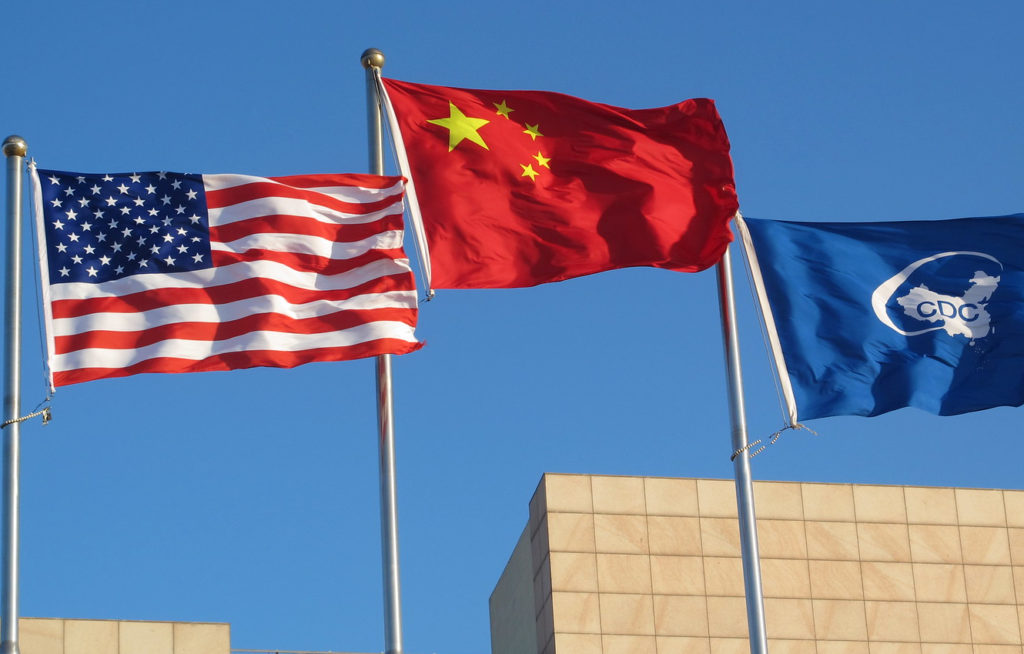The American people deserve honesty about who is at fault for the virus disaster.
Is China Next?

Xi acts aggressively in pursuit of an expanded global role.
The world, we’re told, has never been more divided. In recent weeks, however, united by its hatred of Vladimir Putin, the world—or at least NATO and other U.S. dependencies—has come together. The U.S., UK, and EU have slammed Russia with a wave of sanctions, designed to cripple the Russian economy, and the approach seems to be working. The ruble has collapsed, and inflation is running close to 20 percent.
Right now, Russia is a dangerous country. But as far as the U.S. is concerned, China is far more problematic, and far more dangerous, than Russia. Like Putin, a man who won’t rest until Ukraine acquiesces to his demands, Xi Jinping won’t rest until Taiwan falls to China. An invasion of Taiwan appears to be entirely realistic and increasingly likely. If and when it occurs, how will the world respond?
Proximity, according to one author, makes the heart grow fonder. This is certainly not the case with Taiwan and China. The Economist calls Taiwan, separated from the Chinese mainland by only 80 miles of water, “the most dangerous place on Earth.” Given Xi’s obsession with the small island, the people of Taiwan have every right to be fearful. What’s occurring in Ukraine could easily occur in Taiwan; Xi Jinping has stated, repeatedly and vociferously, that his vision of “One China” is non-negotiable. In October of last year, the 68-year-old paramount leader of the world’s most populous nation reminded the world that “reunification” with Taiwan “must be fulfilled” at all costs.
But the world’s reaction to an invasion of Taiwan would be significant. Gary Hufbauer, a nonresident senior fellow at The Peterson Institute for International Economics, told me that “if China invaded Taiwan, all the sanctions imposed on Russia would be visited on China, and then some. “
“In particular,” he continued, “China has massive assets abroad, in the form of direct and portfolio investments, central bank reserves, and private currency reserves. All these would be subject to seizing, not just freezing.”
China does have “massive assets abroad.” Twenty years ago, China had 2.6 trillion yuan in net foreign assets, that is, the sum of foreign assets held by monetary authorities and deposit money banks, less foreign liabilities. By 2020, that had increased ten-fold to 26.8 million yuan, growing at an average annual rate of close to 14 percent, according to a report by the experts at Knoema.
At the same time, from sub-Saharan Africa to South America, China has gobbled up vast amounts of land, arguably the most important asset on the planet. Since 2011, China has acquired more than 6.5 million hectares of land around the world. Over the past decade, as Nikkei Asia previously reported, the “combined area of land purchased or leased” by companies with close ties to the Communist Party of China (CPC) “is equal to the total land area of Sri Lanka or Lithuania and much larger than acquisitions by their counterparts in the U.S. and other major countries.”
As authors at AgWeb reported last year, since 2011, around the very same time China started acquiring millions of hectares around the world, Chinese firms “have expanded their presence in American agriculture,” by “snapping up farmland and purchasing major agribusinesses, like pork processing giant Smithfield Foods.” Now, Chinese owners with close ties to Beijing control at least 192,000 agricultural acres in the U.S., worth roughly $2 billion. While this represents a tiny fraction of America’s 900 million acres of farmland, because of such aggressive acquisitions, as I reported last year, some U.S. officials have expressed concern that the country could be “headed towards a CPC-backed agricultural land monopoly.” Some concerned members of congress attempted to arrest this particularly worrying slide.
Furthermore, across the country, over the last two decades, Chinese companies have acquired more than $120 billion of assets. According to Public Citizen, “fifteen Chinese government entities (sovereign wealth funds and state-owned enterprises) and government-connected private sector firms account for nearly 60 percent of this activity.”
Meanwhile, in Australia, Shanghai CRED, a Chinese property developer with close ties to Beijing, owns the biggest ranch in the world. Situated in Queensland, the ranch is home to 171,000 cattle and 80,000 square kilometers of land. A Chinese company (Shandong Ruyi) owns Australia’s largest cotton farm. In the UK, CPC-backed investors have amassed somewhere in the region of £134 billion of assets (roughly $175 billion); these investors control an array of businesses, including energy companies and breweries. Like the Russian oligarchs who have had their assets frozen in the UK, many of whom appear to closely associated with Putin, a number of Chinese investors in the U.S. and UK are known—as all Chinese enterprises must—to have close ties with Xi Jinping and the CPC. If China invades Taiwan, these assets would be subject to sanction and seizure.
Sanctions would profoundly disrupt the Chinese economy and cause immediate pain. As Hufbauer explains, “since China is far more engaged with the world economy than Russia, the blockage of trade and financial flows would inflict a heart attack on the Chinese economy.” Because of the severity of such measures, he is “skeptical that China will mount an invasion in the near future, even putting aside a U.S. military response.”
Nevertheless, the world must be prepared. Russia now finds itself cut off from the Society for Worldwide Interbank Financial Telecommunication, more commonly known as SWIFT; if China invades Taiwan, it should also be cut off. Russia no longer has access to its $630 billion trove of foreign exchange reserves; again, similar measures could be taken against China. Western companies like Apple and MasterCard, as well as IKEA and McDonald’s, have pulled out of the Russian market. Although China is a far more lucrative market than Russia, a similar exodus could occur.
In the meantime, the West needs to recognize that the last quarter-century of developing China economically with the blithe assumption that the country would bloom with the thousand flowers of neoliberal democracy was a failure. The United States, in particular, offshored its industrial base to China in exchange for cheap manufactured goods—in hindsight, a bad deal. Reshoring industry must be embraced with the same kind of fervor with which the Clinton Administration rushed to give China Most Favored Nation trading status in 2000.
This commitment will require national unity and a new assumption of responsibility on the part of the American elite, which has grown fat and comfortable playacting as citizens of the world. Rebuilding the country’s industrial base will be a challenging but necessary task, one for which sanctions, no matter how aggressive, are no substitute.
The American Mind presents a range of perspectives. Views are writers’ own and do not necessarily represent those of The Claremont Institute.
The American Mind is a publication of the Claremont Institute, a non-profit 501(c)(3) organization, dedicated to restoring the principles of the American Founding to their rightful, preeminent authority in our national life. Interested in supporting our work? Gifts to the Claremont Institute are tax-deductible.
America’s unserious political class is totally unequipped to deal with the threat.


